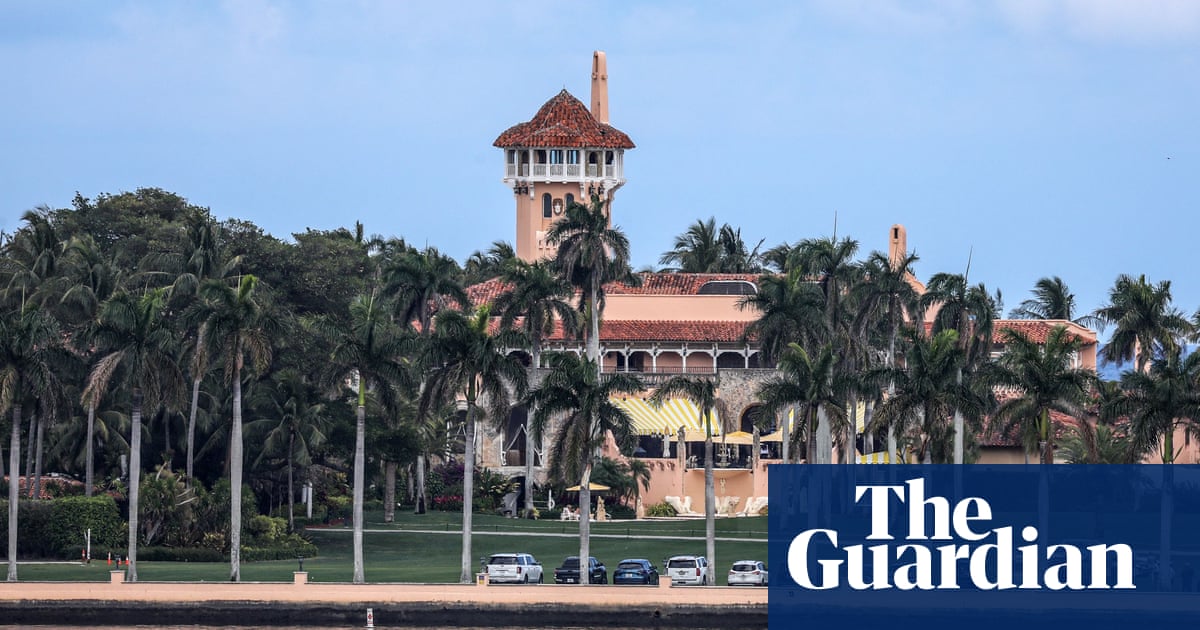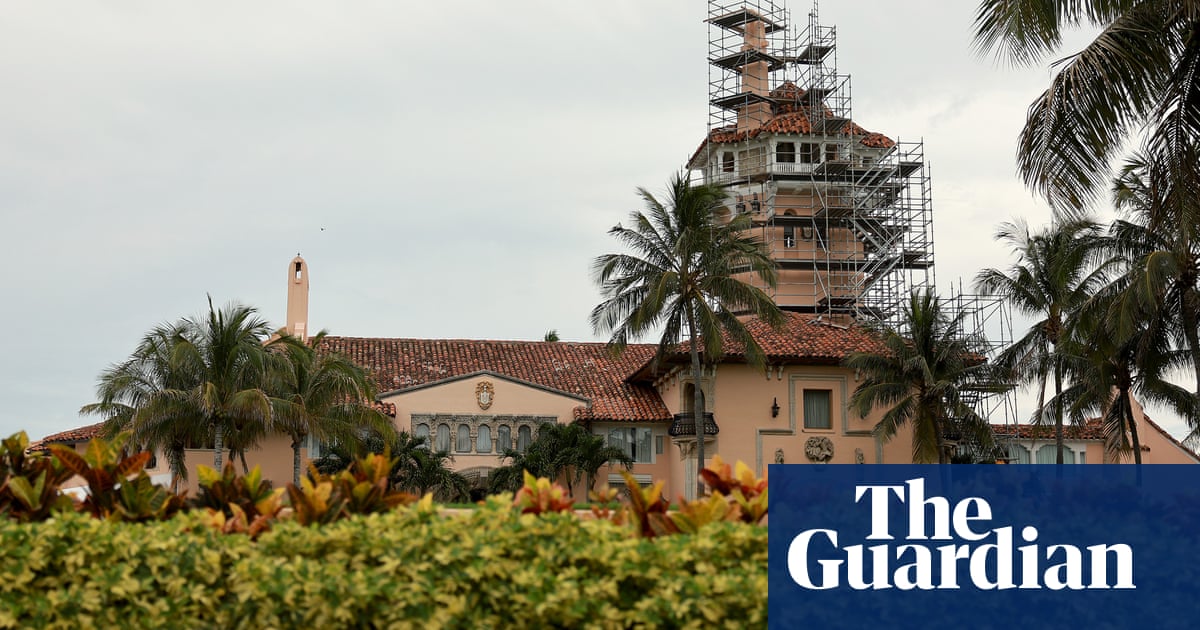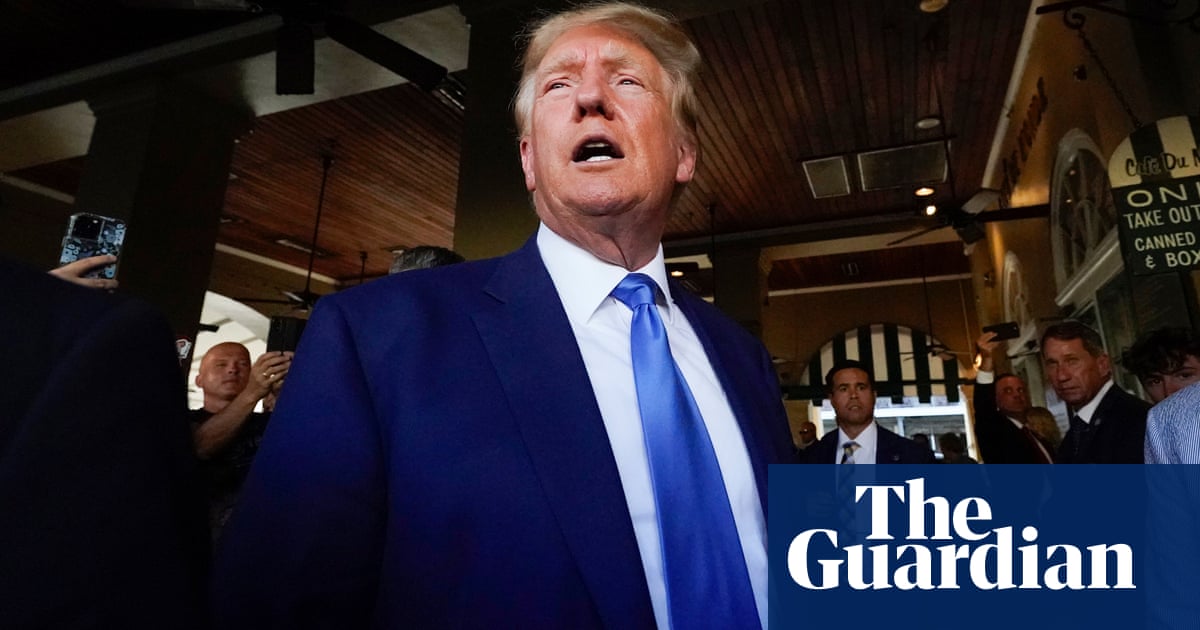
Lawyers for Donald Trump, defending him against charges that he retained national security documents at his Mar-a-Lago club, have asked a federal judge to grant them unprecedented access to the classified information that prosecutors want to redact before it gets introduced at trial.
“Cleared counsel for President Trump seek attorneys’-eyes-only access to these filings so that we can challenge the [special counsel’s] assertions in adversarial proceedings,” the Trump legal team said in the 18-page filing.
The request – asking for access to the US government’s sealed court filings that are off limits to defense counsel by default under statute – is significant because even a partial ruling in Trump’s favor by the US district judge Aileen Cannon could trigger the first appeal in the case.
Such an appeal to the 11th circuit would be interlocutory, meaning it would have to be adjudicated before trial, almost certainly delaying other pre-trial deadlines and therefore the May 2024 trial date, which is already estimated to be running about four months behind schedule.
The Trump motion was also widely regarded by legal experts as extraordinary because it turned on its face the point of the complex procedures governing how classified documents can be made public in criminal cases without risking national security.
Trump was indicted by a federal grand jury in June with violating the Espionage Act by retaining documents about the likes of US nuclear secrets, which means his case will be tried under the rules laid out in the seven-section Classified Information Procedures Act, or Cipa.
At issue in the Trump case is the Cipa section 4 filing submitted by special counsel prosecutors. Under section 4, the government can file a motion to redact classified information that would qualify as discovery but would not be “relevant or helpful” to defense counsel.
The goal of section 4 is to eliminate what was previously known as the “graymail” problem in national security cases, where defense counsel threatened to reveal classified information at trial, betting that the government would prefer to drop the charges rather than risk disclosure.
It remains unclear what prosecutors in the office of special counsel Jack Smith want to redact, other than the fact that it encompasses “four categories of especially sensitive classified information”, according to recently unsealed filings.
The judge technically has discretion under the statute to decide how to proceed with section 4 filings, but legal experts said the Trump motion, asking to see everything, amounted to a request to defeat the entire purpose of Cipa section 4 to protect against the threat of graymail.
Trump’s lawyers essentially argued that special counsel prosecutors should be forced to share what classified information they want to redact because the criminal justice system broadly disfavors filings that are not shown to defense counsel, and because they have the necessary clearances.
The Trump team also made a novel argument about how the development of laws granting greater access to national security matters – like having motions to suppress evidence in the secret foreign intelligence surveillance (Fisa) courts – should prompt Cannon to consider creating new precedent.
The Trump legal team’s motion also asked for the judge to order special counsel prosecutors to file redacted versions of their Cipa section 4 filing on the public docket, which could shed light on the government’s legal arguments about the relevance of some of the classified information.












